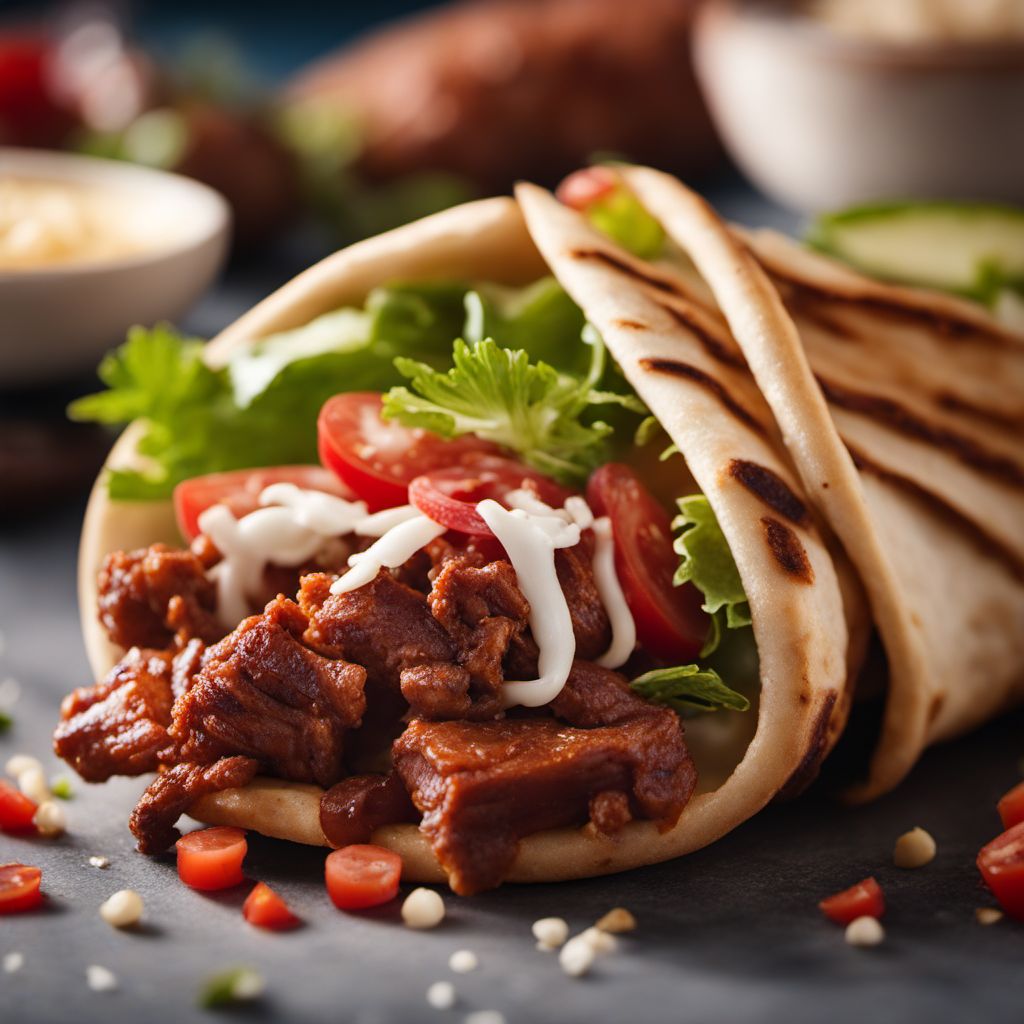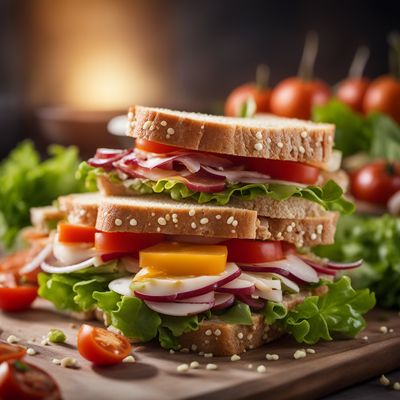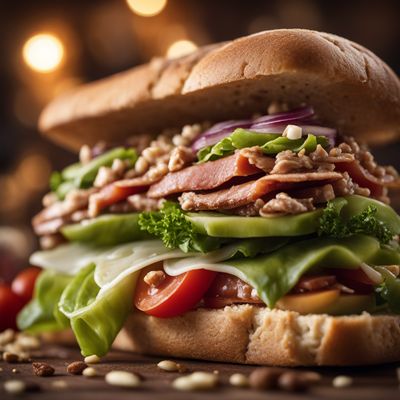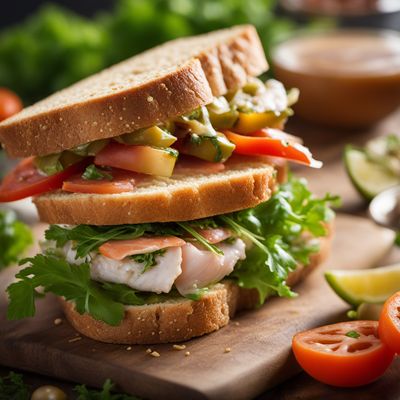
Ingredient
Doner kebab
The Savory Delight: Unraveling the Secrets of Doner Kebab
Doner kebab is a savory dish made from succulent layers of marinated meat, typically lamb, beef, or chicken, that are stacked on a vertical rotisserie and slow-cooked to perfection. The meat is thinly sliced and served in a warm pita bread or flatbread, accompanied by a variety of fresh vegetables, sauces, and condiments. The resulting combination of tender meat, crispy edges, and vibrant flavors creates a truly satisfying culinary experience.
Origins and history
Doner kebab traces its roots back to the Middle East, specifically to the Ottoman Empire, where it was known as "döner" meaning "turning" or "rotating." It was traditionally prepared using lamb meat, which was marinated with a blend of aromatic spices and slowly cooked on a vertical spit. Over time, the dish spread across the Mediterranean and Europe, adapting to local tastes and ingredients. Today, doner kebab is enjoyed in various forms and has become a beloved street food in many countries.
Nutritional information
Doner kebab is a good source of protein, providing essential amino acids for muscle growth and repair. It also contains varying amounts of fat, depending on the type of meat used and the cooking method. Additionally, the inclusion of fresh vegetables and whole-grain bread in the dish adds fiber, vitamins, and minerals to the overall nutritional profile.
Allergens
Doner kebab may contain allergens such as wheat (in the bread), soy (in some sauces), and dairy (in certain yogurt-based dressings). It is important to check the specific ingredients and preparation methods to ensure it is suitable for individuals with allergies.
How to select
When selecting doner kebab from a vendor or restaurant, look for well-cooked and evenly browned meat that appears juicy and tender. The meat should be sliced thinly and served hot. Freshly prepared vegetables and sauces should also be available, allowing you to customize your kebab according to your preferences.
Storage recommendations
Leftover doner kebab should be refrigerated promptly and consumed within 2-3 days to maintain its freshness. Store the meat separately from the bread and vegetables to prevent sogginess. Reheat the meat thoroughly before consuming.
How to produce
Doner kebab can be challenging to produce at home due to the specialized equipment required for the traditional vertical rotisserie cooking method. However, a similar result can be achieved by marinating thinly sliced meat in a blend of spices, then grilling or roasting it until cooked through. Slicing the meat thinly after cooking will help replicate the texture and appearance of the traditional doner kebab.
Preparation tips
To prepare a delicious doner kebab, marinate the meat overnight in a mixture of olive oil, lemon juice, garlic, cumin, paprika, and other desired spices. Skewer the marinated meat and cook it slowly on a grill or in the oven until it is cooked through and has a slightly charred exterior. Slice the meat thinly and serve it in warm pita bread or flatbread, along with fresh lettuce, tomatoes, onions, and a drizzle of yogurt-based sauce or tahini.
Culinary uses
Doner kebab is commonly enjoyed as a street food, served in pita bread or flatbread with a variety of toppings and sauces. It can also be incorporated into salads, wraps, or rice bowls for a flavorful and protein-rich meal.
Availability
Doner kebab is widely available in countries across the globe, particularly in the Middle East, Europe, and North America. It can be found in restaurants, food stalls, and even some fast-food chains.
More ingredients from this category

Sandwich with cheese and vegetable topping/filling
"Garden Delight: A Scrumptious Sandwich with Cheesy Veggie Goodness"

Hot dog with bread
The Classic Comfort

Sandwich with cheese, egg and vegetable topping/filling
Elevate Your Lunch: A Gourmet Sandwich Delight

Sandwich with processed meat topping/filling
The Savory Delight: Exploring the World of Processed Meat Sandwiches

Sandwich with fish topping/filling
Ocean Delight Sandwich

Sandwich with cheese topping/filling
"Melting Delights: Elevate Your Sandwiches with Irresistible Cheese Toppings and Fillings"

Sandwich with vegetable topping/filling
Vibrant and Wholesome: Vegetable-Topped Sandwiches

Hamburger with bread
"The Classic American Delight: Juicy Hamburger on a Soft Bun"

Steak sandwich
Savory Delight: The Perfect Steak Sandwich

Sandwich with meat and vegetable topping/filling
The Ultimate Stacked Delight: Meat and Veggie Sandwich

Sandwich with fish and vegetable topping/filling
Oceanic Delight: A Wholesome Fish and Veggie Sandwich